Pope Francis Elevates the Discourse on Capitol Hill
"God bless America" sounds banal coming from politicians but profound when spoken by the shepherd of 1.2 billion souls. In his historic address to Congress, Pope Francis delivered a blessing of encouragement, not admonition -- and spoke powerfully about the hot-button issues that keep our political leaders mired in bitter gridlock.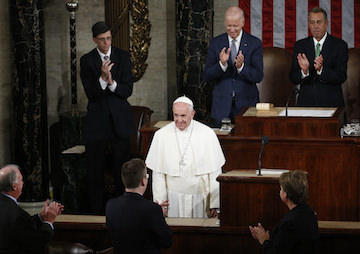 Vice President Joe Biden (center rear), House Speaker John Boehner (right) and others applaud Pope Francis at his address to Congress on Thursday. (Carolyn Kaster / AP)
Vice President Joe Biden (center rear), House Speaker John Boehner (right) and others applaud Pope Francis at his address to Congress on Thursday. (Carolyn Kaster / AP)
“God bless America” sounds banal coming from politicians but profound when spoken by the shepherd of 1.2 billion souls. In his historic address to Congress, Pope Francis delivered a blessing of encouragement, not admonition – and spoke powerfully about the hot-button issues that keep our political leaders mired in bitter gridlock.
The pope’s words drew warm applause. I wish I could be optimistic that they also touched our leaders’ hearts.
Francis was clear and strong on immigration. At a moment when presidential candidates are promising border walls and tough policies of exclusion, the first pope born in the New World noted that almost all Americans are immigrants.
“On this continent,” he said, “thousands of persons are led to travel north in search of a better life for themselves and for their loved ones, in search of greater opportunities. Is this not what we want for our own children?” His message to those who would “turn their back on their neighbors” was unambiguous: “In a word, if we want security, let us give security. If we want life, let us give life. If we want opportunities, let us provide opportunities.”
Francis was also direct in issuing a condemnation of arms dealing — and, to my ears, what sounded like a clarion call for gun control.
“Why are deadly weapons being sold to those who plan to inflict untold suffering on individuals and society?” he asked. “Sadly, the answer, as we all know, is simply for money: money that is drenched in blood, often innocent blood. In the face of this shameful and culpable silence, it is our duty to confront the problem and to stop the arms trade.”
On some issues, perhaps mindful of the sharp ideological differences among members of Congress, Francis chose his words with particular care.
He did not repeat his toughest criticisms of capitalism, skipping a passage in his prepared remarks that said politics “cannot be a slave to the economy and finance.” Instead, he quoted his recent encyclical that called business “a noble vocation … especially if it sees the creation of jobs as an essential part of its service to the common good.”
And unlike his speech at the White House on Wednesday, Francis’ address to Congress did not include the phrase “climate change.” More obliquely, he said that “the United States and this Congress have an important role to play” in averting “the most serious effects of the environmental deterioration caused by human activity.”
There were moments when the pope’s words seemed to elicit predictable partisan responses. His reminder of “our responsibility to protect and defend human life at every stage of its development” — a clear reference to the Roman Catholic Church’s opposition to abortion and contraception — drew applause mostly from Republicans. When he went on to say that this respect for life leads him to favor “the global abolition of the death penalty,” it seemed to be Democrats who did the clapping.
Similarly, his complaint that “fundamental relationships are being called into question, as is the very basis of marriage and the family” — an apparent reference to same-sex marriage — was applauded by conservatives. His view that the family is also threatened by a lack of economic mobility was warmly received by progressives.
Francis was both subtle and shrewd in choosing the four American icons whose lives and work formed the scaffolding of his speech. Abraham Lincoln and the Rev. Martin Luther King Jr. are, of course, universally known and admired. Dorothy Day, the founder of the Catholic Worker Movement, exemplified the church’s social mission and its undying advocacy for the poor. Thomas Merton, a Cistercian monk and author whose best-known book is “The Seven Storey Mountain,” gave witness to the interior struggle and journey that true faith requires.
After the speech, Francis emerged on the speaker’s balcony at the Capitol to briefly address a vast crowd. Pointedly, he asked nonbelievers who could not pray for him to instead send him their good wishes. Many surely did, because the pope’s visit is having an impact far beyond the 70 million Americans who are Roman Catholics.
So much of our political life is sour and conflictive. Francis’ message is optimistic and embracing. He reminds us of something elemental but easily forgotten: our common humanity.
With his intellect, charisma, moral authority and irresistible smile, Francis challenges us to remember that whatever our political or theological differences, we are all in this together. For those paying attention, he has shown how to raise our political discourse from the ridiculous to the sublime.
With an uncertain future and a new administration casting doubt on press freedoms, the danger is clear: The truth is at risk.
Now is the time to give. Your tax-deductible support allows us to dig deeper, delivering fearless investigative reporting and analysis that exposes what’s really happening — without compromise.
Stand with our courageous journalists. Donate today to protect a free press, uphold democracy and unearth untold stories.
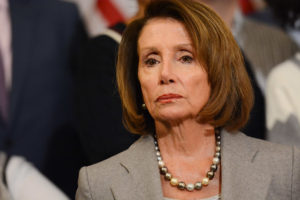
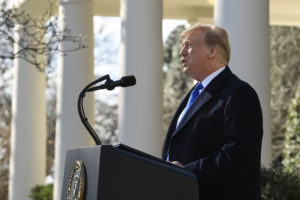
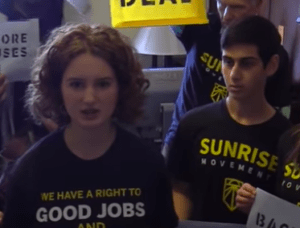

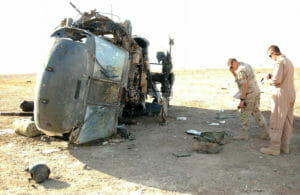
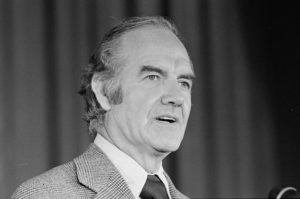
You need to be a supporter to comment.
There are currently no responses to this article.
Be the first to respond.